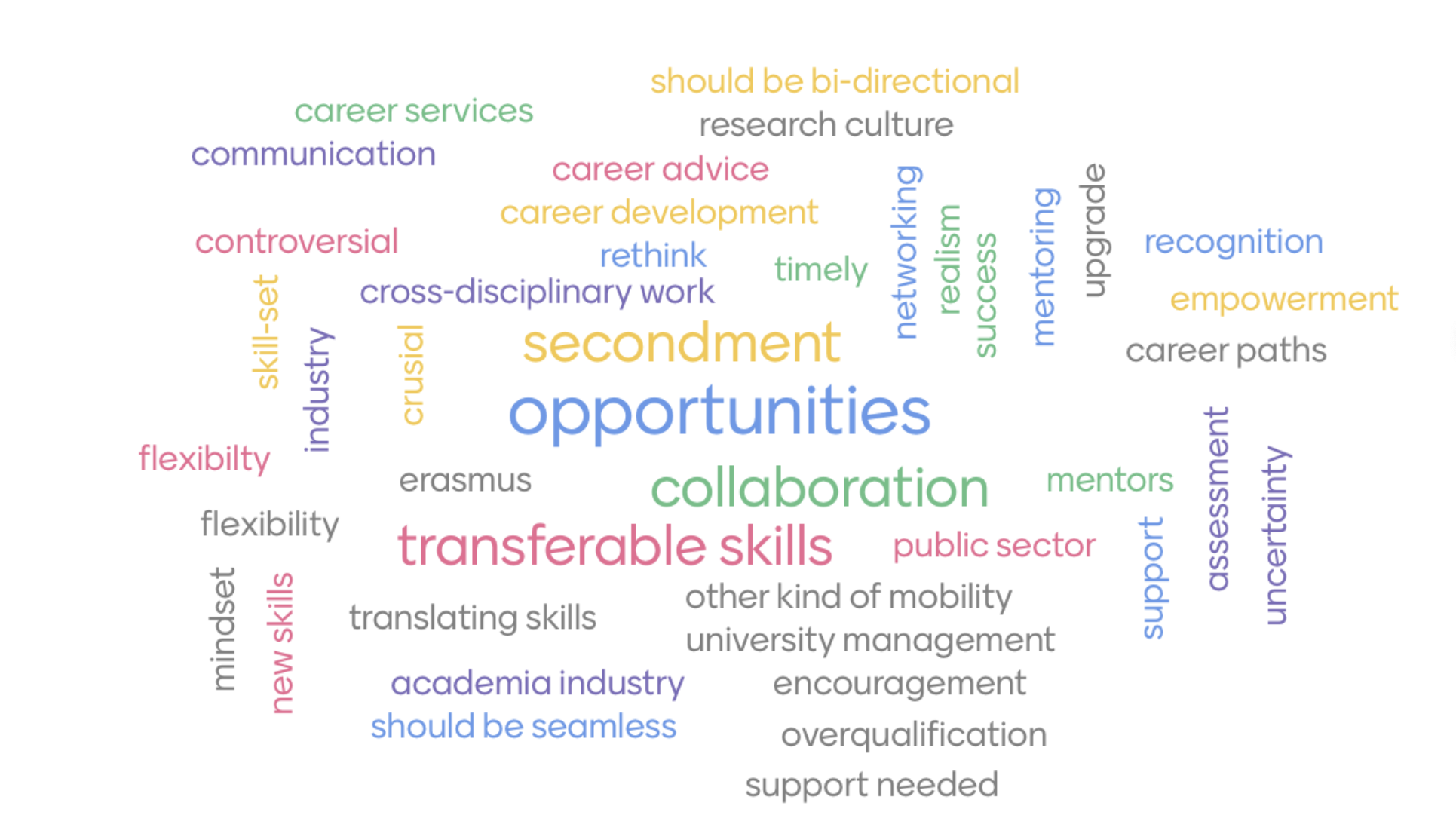In the context of its extensive work on ERA Action 4 (Research Careers) and related initiatives, as well as on ERA Action 3 (Reform of Research Assessment) and within CoARA, YERUN is organising a series of lunchtime events in June, dedicated to Early Career Researchers (ECRs).
The first event took place on 9 June 2023 and focused on “Early Career Researchers and Intersectoral mobility”.
Featured speakers came from associations representing Early Career Researchers, CoARA’s Steering Board, the European Commission, and three YERUN Universities (University of Antwerp, University of Eastern Finland, and University of Rijeka) – see the full programme and list of speakers.
Here is a snapshot of the event:
The discussions pointed to the need to facilitate seamless and two-way mobility of ECRs between academia and the wider job market, looking at current initiatives at policy and institutional levels. Specific factors, actions and actors were identified as key enablers:
- Universities can provide support through adequate training programmes in Doctoral Schools, well-resourced career services and knowledge valorisation offices, in order for ECRs to acquire skills and receive guidance relevant for their career mobility. Embedding universities in their wider economic and social ecosystem is crucial, by providing opportunities for connection with other professional networks, creating secondments and joint programmes with employers from other sectors.
- At system level, appropriate recognition of ERCs’ skills and of the experiences they gained in other sectors would help them move beyond academia – and come back to academia. The reform of research assessment developed through CoARA, as well as other initiatives that are also targeting mindsets and entrenched cultures are crucial to normalising intersectoral career mobility, which should be seen as an asset rather than a commitment to an alternative career path.
- In certain countries or regions, legislation may get in the way of following good practices for intersectoral mobility – notably through rigid grant requirements, inappropriate secondment procedures, IP rights provisions or visa and work permit regulations. At the same time, in certain fields, the current funding and regulatory landscape may not enable universities to retain the best talent and remain competitive in the face of competition from other sectors – underlying the need for policies to facilitate intersectoral mobility in both directions.
The debate certainly doesn’t stop there, and YERUN universities will continue to foster reflections on the challenges and the best ways forward to fostering intersectoral mobility from and to academia.
We look forward to continuing this conversation on 16 June, when we will delve into the topic of Mentoring – for ECRs and more widely.
.
Please find below all the presentations given at the event:
- Yensi Flores Bueso – Steering Board Member, Coalition for Advancing Research Assessment | Global Young Academy
- Dario Capezzuto – Policy Officer, European Commission, DG for Research and Innovation
- Jouni Kekäle – Chief Senior Specialist, Human Resources Department, University of Eastern Finland
- Margaux Kersschot – Policy Adviser, Young Universities for the Future of Europe at University of Antwerp | Coordinator, DIOSI-project
- Mostafa Moonir Shawrav – Marie Curie Alumni Association










